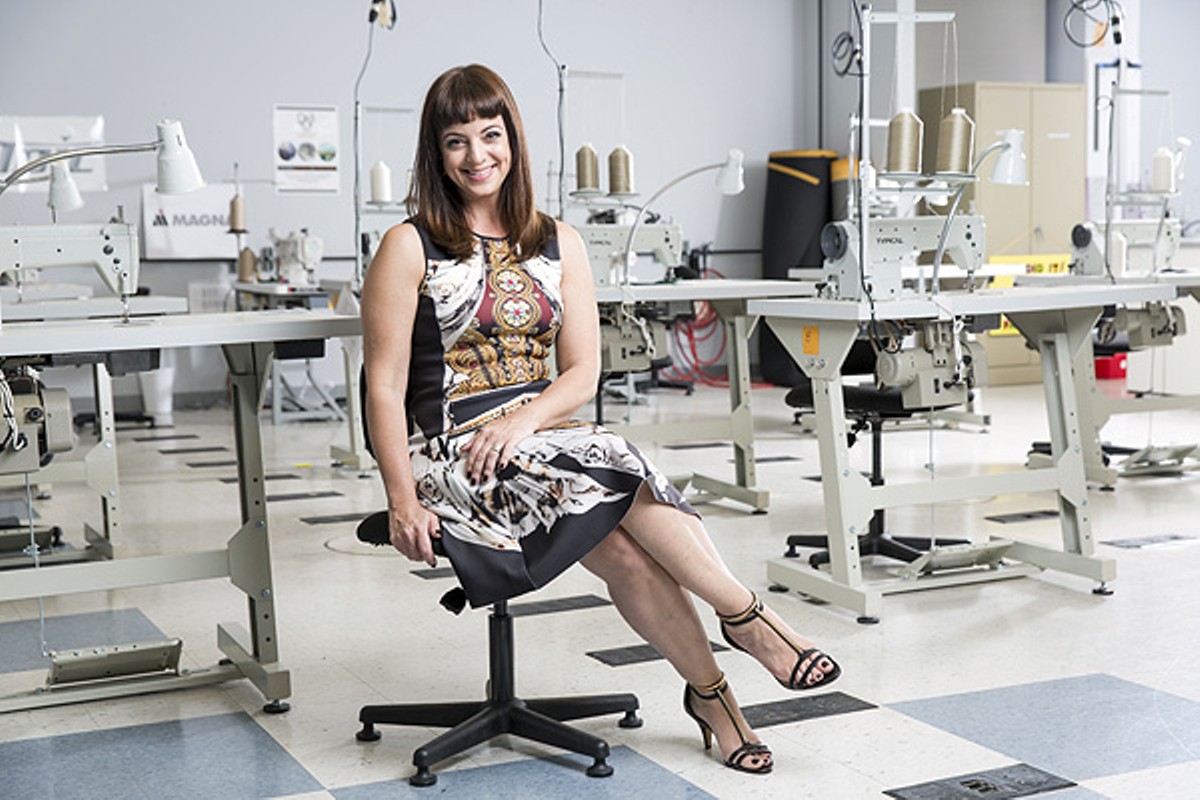Many know Karen Buscemi as the editor of StyleLine. The Detroit-based fashion magazine was once the biggest in the state, but after six years in production, the glossy folded in October 2014.
But Buscemi didn't find herself suddenly out of work completely. Two years before the mag folded, she founded the Detroit Garment Group, a nonprofit with aims of helping emerging fashion designers learn how to manage their business affairs and promote themselves.
"I will tell you that we truly just organically evolved based on what we were finding and the needs that we saw," she says.
Part of that evolution involved Fashion Speak, an annual daylong conference where business experts connect with and teach local designers.
"This is not New York. When you graduate, if you want to stay in the state, you can't just go work for a design house, start from the ground up, and learn the business," says Buscemi.
Through five workshops, the event helps local designers learn how to write a business plan, create final projections, and brand themselves. Buscemi says designers also learn about the supply chain, where to find money to start their business, and how to get much-needed media attention. It's no small task from start to finish, and not many places in Michigan offer such tutelage. The conference is a vital part in helping grow what could be a huge fashion industry in Detroit.
"That was the thing that really started to blow my mind, was how many fashion designers there are in the state of Michigan, the level of talent that's here, and how nobody really knows it," she says.
Buscemi is conscious that a flourishing fashion industry needs more than talented fashion designers, it also needs a skilled workforce.
In 2014, Detroit Garment Group partnered with Henry Ford College and Michigan Works to create an industrial sewing certificate program. Through extensive research, Buscemi says she found it wasn't just the garment industry that could use those skills — the automotive and upholstery industry, for example, are both in need of skilled industrial sewers.
"We started with a small grouping of employers and found out that there were 300 open jobs in industrial sewing," she says. "Which is insane."
As of May, Buscemi says the program's fourth day class and first night class are in session. After getting their certification, students can go on to work anywhere from Shinola to Marygrove Awnings.
And the program is growing.
"This year we're adding patternmaking and sewing machine repair curriculum; these areas that are very high in demand, and they demand a higher salary," she says. "They can get their Journeyman's card, and it'll be a nationally recognized apprenticeship."
Buscemi's efforts to create the infrastructure of a successful garment district don't stop there. She's actually and actively trying to build a garment district.
"We are working with the city, the Detroit Economic Cooperation, with Sue Mosey, and Midtown Detroit Inc., along with other partners to find the right place, the right space, and to create a district that really makes sense for Michigan," she says.
Buscemi's grand scheme won't be complete until Michigan is known for an industry other than automotive.
"My ultimate vision is to make Michigan the state for the cut-and-sew industry so whether that is apparel, upholstery, boating, automotive — that this is the state that people think of when they think of cut-and-sew," she says. "Whether you are a fashion designer, an apparel cut-and-sew manufacturer, an automotive supplier, whatever your company is — when you're thinking about where you want to start it, where you want to relocate it, you're thinking Michigan is the place to go."






